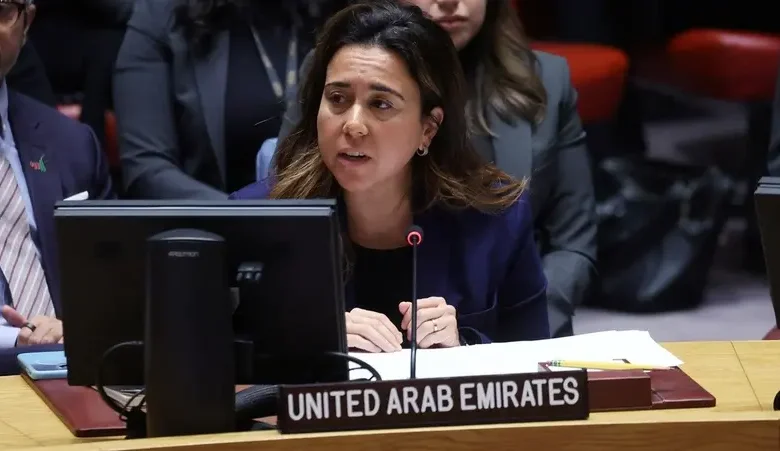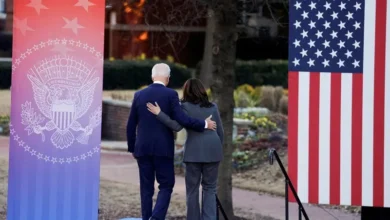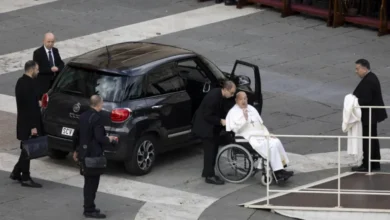International law cannot be an ‘a la carte menu:’ UAE says at ICJ hearing

International law cannot be an “a la carte menu” and “must apply to all,” the United Arab Emirates said as it presented its arguments to the International Court of Justice on Wednesday.
The ICJ is hearing arguments from 52 countries and three international organizations this week – the largest number of participants in any single World Court case – to review Israel’s “occupation, settlement and annexation” of the Palestinian State, along with policies aimed at altering the demographic composition, character and status of the city of Jerusalem.
“International law cannot be an a la carte menu. It must apply equally to all, and it is more essential in the long shadow cast by the Palestinian question and injustice that has persisted for more than seven decades,” Lana Nusseibeh, the UAE’s ambassador to the United Nations, said.
Addressing a15-judge panel at The Hague, Nusseibeh reiterated the UAE’s position of a two-state solution and an independent Palestinian state adding that the only path to “just and lasting peace is through the fulfilment of the long denied right of the Palestinian people to self-determination with an independent and sovereign Palestine based on the 1967 borders with East Jerusalem as its capital.”
She said that Israel has often breached its obligation to allow free access to holy places in Jerusalem, “undermining the special character of Jerusalem and erase its cultural heritage.”
Restrictions to the Al-Aqsa Mosque compound have been a frequent source of friction between Palestinians and Israeli authorities, particularly during the Muslim holy month of Ramadan, which begins this year around March 10.
Israel will cap the number of Muslim citizens who take part in peak prayers at the mosque during the upcoming Ramadan month, the police minister said on Tuesday, citing concern the flashpoint site could see protests on the Gaza war.
Al-Aqsa, one of Islam’s holiest shrines, is part of East Jerusalem, captured by Israel in a 1967 war and the focus of Palestinian statehood hopes. The site is also revered by Jews as a vestige of their two ancient temples.
“Israel has, in agreements with Jordan and with the Holy See, committed to the historic status quo and freedom of access to the holy places in Jerusalem. It is, therefore, gravely disconcerting that Israel has taken, and continues to take, measures which undermine the special character of Jerusalem and erase its cultural heritage,” Nusseibeh said.
Israel must end its siege on Gaza
Israel must end its military operation in the Gaza Strip, allow aid in the besieged enclave and prevent the forceful displacement of the Palestinians, the UAE ambassador said in her concluding remarks.
“In practical terms, it must mean a ceasefire,” Nusseibeh said.
Israel must comply with all the decisions of the UN Security Council, she said, and member nations must cooperate to put an end to Israel’s breaches of international law.
“Israelis and Palestinians must thrive side by side in their own independent, prosperous and secure states,” Nusseibeh said.
The six-day ICJ hearings are based on a request by the UN General Assembly (UNGA) for a non-binding advisory opinion of the legality of Israel’s policies in occupied Palestinian territories.
Israel has refrained from taking part in this week’s oral arguments and reacted angrily to the 2022 UNGA request of the ICJ, with Israeli Prime Minister Benjamin Netanyahu calling it “despicable” and “disgraceful.”










